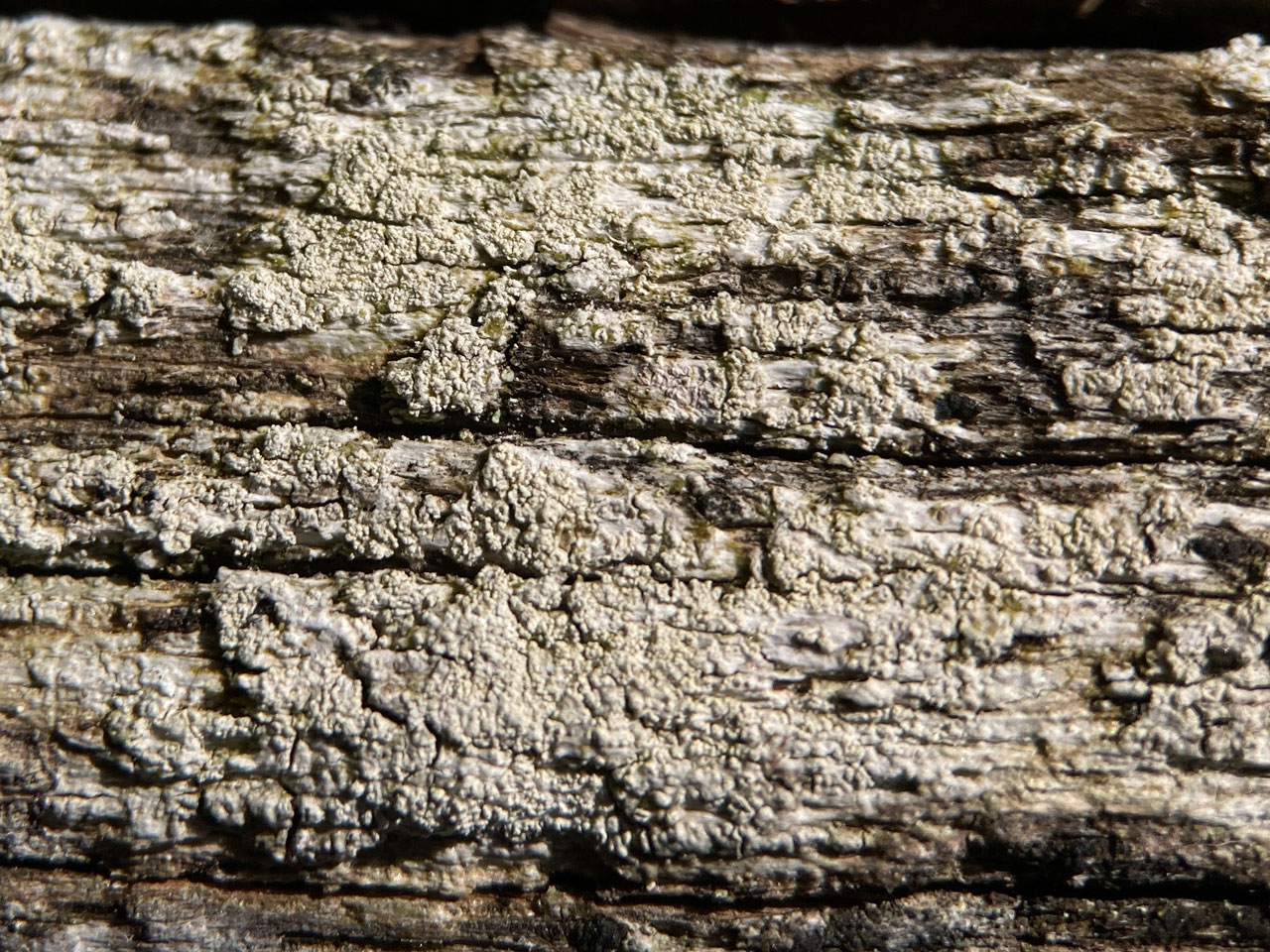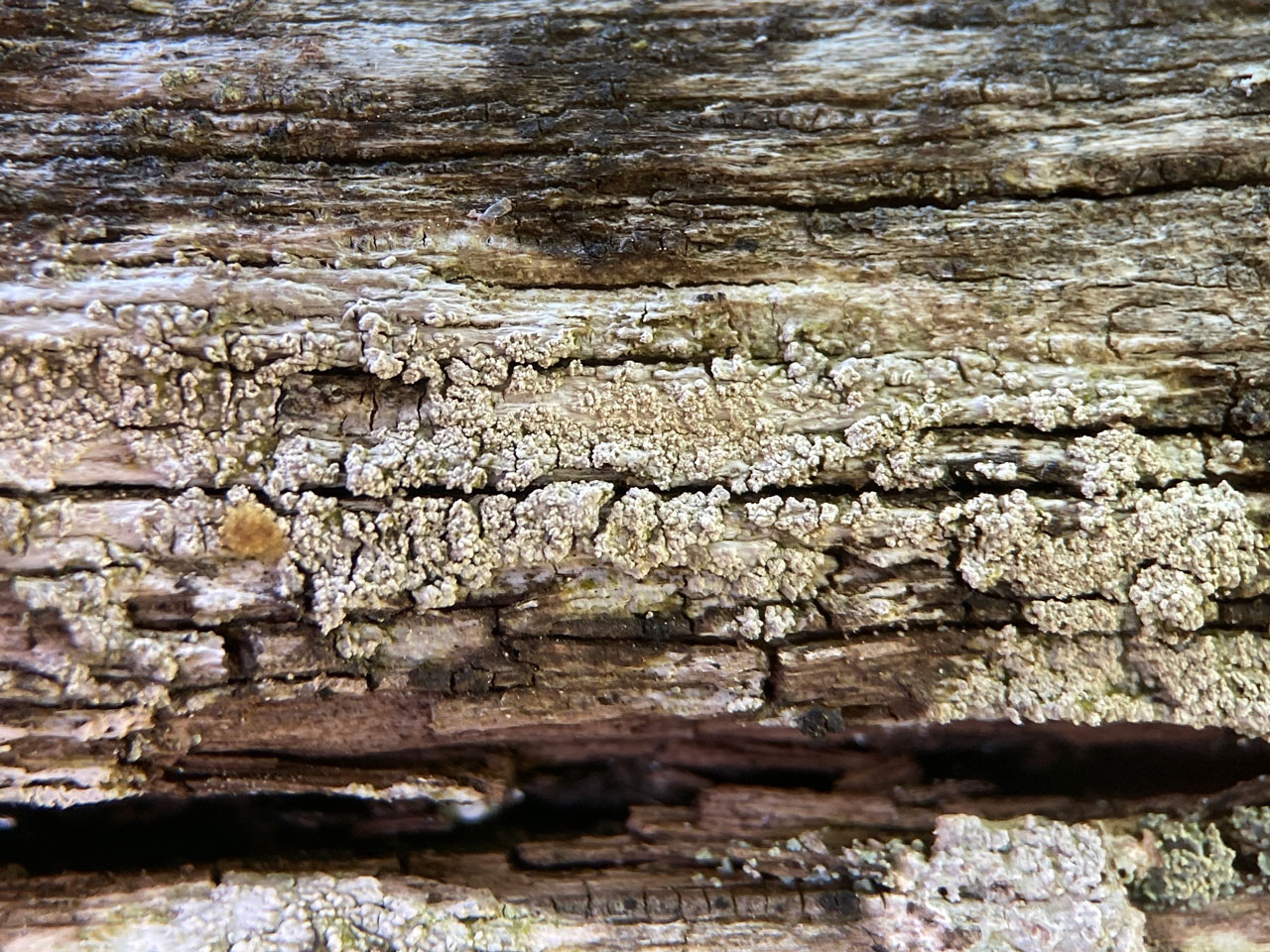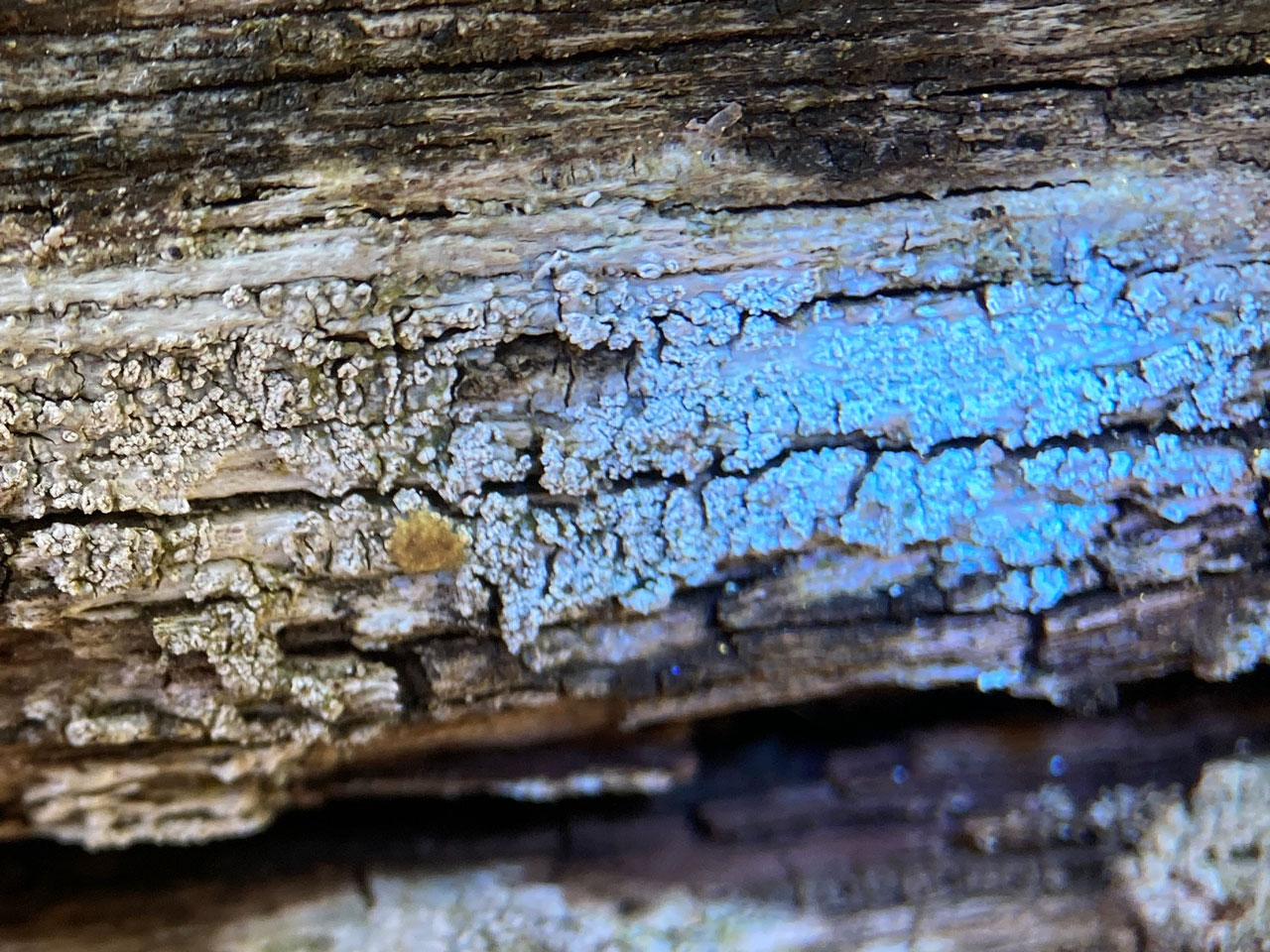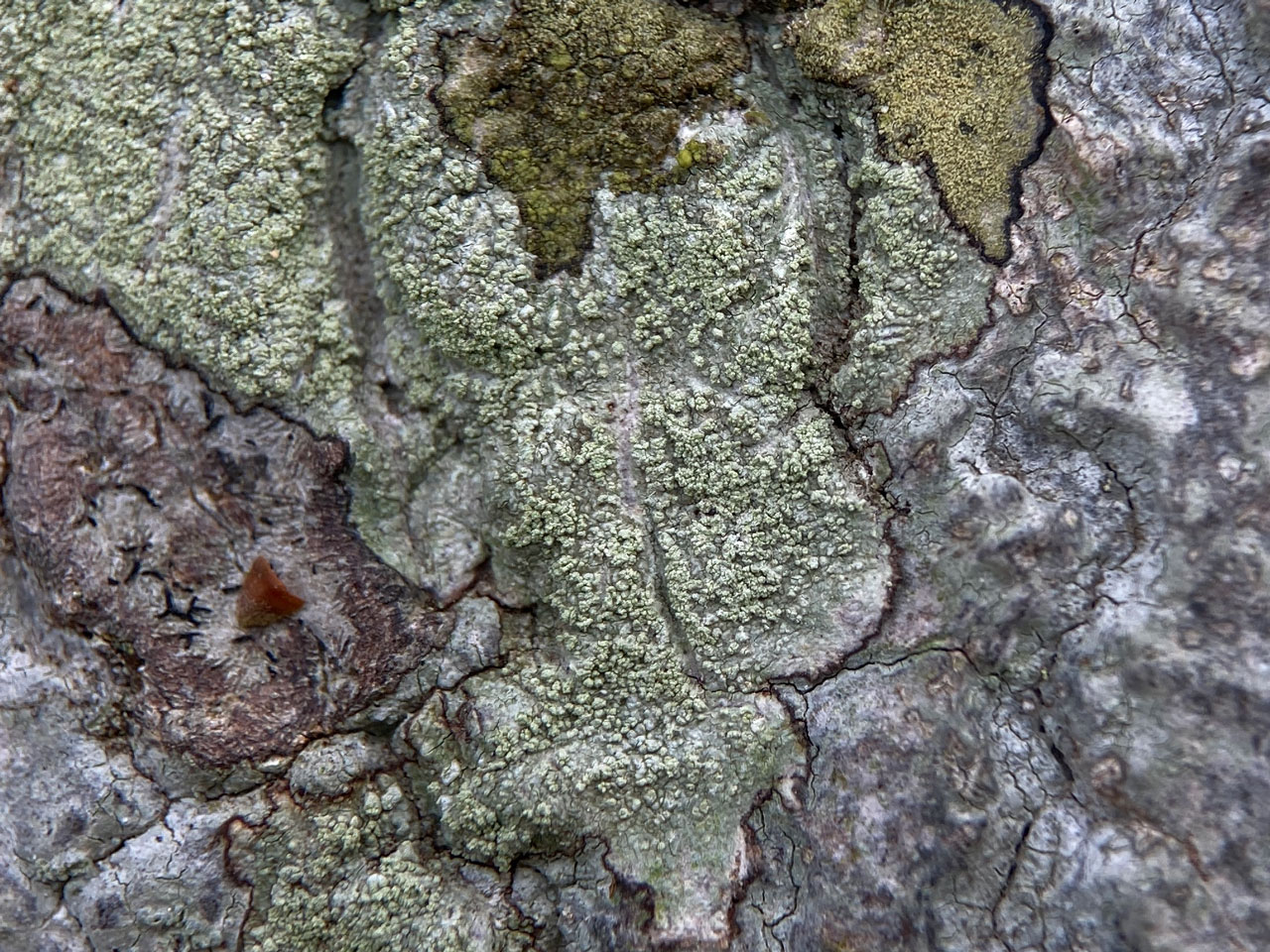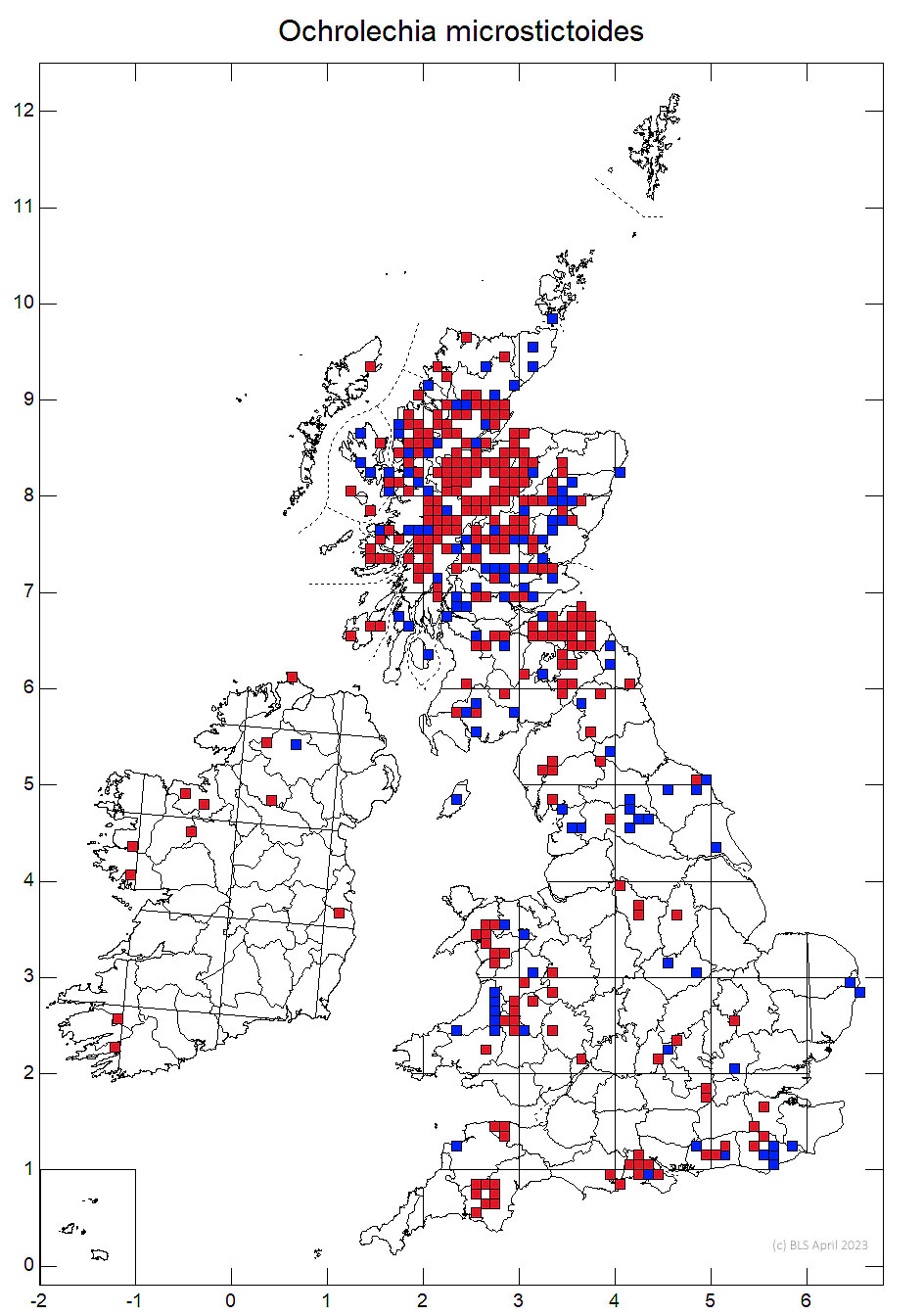Ochrolechia microstictoides grows on acid bark and lignum and rarely rock and can be distinguished from most similar white sorediate crusts by the C+ yellow and KC+ yellow spot tests and the UV+ blue-white fluorescence. The similar Ochrolechia turneri occurs on higher pH more nutrient enriched bark and has soralia that remain mostly discrete, while those of O. microstictoides typically become confluent, but TLC is required for certain identification.
Thallus semi-immersed to thick, smooth, continuous, somewhat cracked, pale white-grey; soralia excavate, round, forming initially along cracks in the cortex or bursting through the thallus, quickly becoming confluent and irregular to form a leprose crust; soredia farinose, 20–40 μm diam., pale grey-white, tinged yellow, often aggregated into consoredia 60 μm or more in diam. Apothecia very rare, similar to those of O. turneri, ca 1.3 mm diam., the thalline margins sorediate. Cortex and soralia C+ yellow, K–, KC+ yellow, Pd–, UV+ white (variolaric and lichesterinic acids, sometimes with protolichesterinic acid); apothecia with variolaric (main), lichesterinic and gyrophoric acids (the last one only in the epithecium).
The only sorediate Ochrolechia with lichesterinic acid in Britain and Ireland. Ochrolechia microstictoides resembles O. turneri but the soralia are confluent which makes the thallus ± leprose and it grows on acidic, not nutrient enriched bark. The isidia of O. subviridis are often interpreted as soredia, leading to potential confusion with this species.
On acid bark and lignum, especially fence tops, occasionally on acid rocks and stonework

Frequent in upland and northern Britain; widespread but under-recorded in acid habitats in the lowlands.
Cannon, P., Kukwa, M., Coppins, B., Fletcher, A., Sanderson, N. & Simkin, J. (2021). Pertusariales: Ochrolechiaceae, including the genera Lepra, Ochrolechia and Varicellaria. Revisions of British and Irish Lichens 5: 1-17.
Text by Neil A Sanderson based on Cannon et al (2021)
